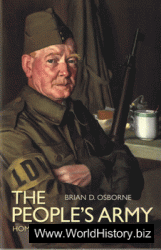The Kongo, an ethnic group located in what is today Angola, the Democratic Republic of Congo, the Republic of Congo, and Zaire, founded a highly centralized kingdom in the 14th century that declined in the 18th century due to Portuguese slave raiding.
The ancestors of the Kongo most likely migrated north to the Congo plateau before the 12th century, settling in organized farming communities. By the 14th century these villages formed a semicohesive federation that was the basis for their kingdom. The kingdom’s founder, Ntine (“King”) Wene, married into the local clan that held spiritual rights over the land, uniting his people with the area’s indigenous people. He used conquest and intimidation to expand his stronghold in the region, which extended at its peak south from the Congo River to the Kwanza River and east from the Atlantic Ocean to the Kwango River. The Kongo kingdom established its capital at the successful farming village of Mbanza Kongo, near the mouth of the Congo River. The kings organized the area into political districts, created a monetary system based on shells, or nzimbu, harvested on the island of Luanda, and exacted taxes and tributes from the subjects. In return the kings protected the kingdom and its people and performed religious rituals. Long a tradition with the Kongo people, iron work became a prerogative of the royal family. The iron industry formed an important part of the Kongo economy, but the kingdom’s environment provided the mainstay for its source of wealth. In the western part of the kingdom, salt lagoons and shell fisheries abounded, and in the east millet farming predominated. The forests of the Kongo kingdom supplied the raffia for the region’s textile industry. Woven raffia squares became a major commodity in the region, providing a source of political and economic influence for the Kongo kingdom.
The Kongo’s first documented contact with Europeans was in 1483, when the Portuguese explorer Diogo Cao arrived. When Cao returned to Portugal, he took with him Kongo emissaries, who returned to their kingdom in 1491 with priests, soldiers, and European trade goods. The priests baptized the Kongo king, Nzinga a Nkuwu, and his son, Nzinga Mbembe. Although Nzinga a Nkuwu later abandoned Christianity, Nzinga Mbembe adopted the name Afonso (or Alfonso) and made Catholicism the state religion of the Kongo kingdom. Afonso maintained strong ties with the Portuguese, trading slaves and ivory for European goods and guns. He also invited missionaries to his kingdom and renamed the capital Sao Salvador. When Jesuits arrived in Kongo territory in 1548 (after Afonso’s death), they opened schools and converted many Kongolese to Catholicism.
Afonso’s grandson, Diogo I (r. 1545-61), tried to limit Portuguese influence in the Kongo economy but encouraged religious and political ties with the European power. Diogo attempted to assert Kongo control over Portuguese settlers in the region and to reassert the kingdom’s dominance over inland trade. In 1555 he banned all but a few Portuguese traders from his kingdom in an attempt to reassert his economic control, but the Portuguese on the nearby island of Sao Tome continued to engage in trade, undermining Diogo’s success. In another bid for control, Diogo expelled the Jesuits in 1558.
The slave trade ultimately undermined the Kongo kingdom when the neighboring peoples who were the targets of Kongo slave raiders retaliated. The resulting instability weakened the Kongo, forcing the kingdom into dependence upon the Portuguese. By the mid-17th century the Kongo kingdom had lost much of its power in the region, although it remained intact and influential through the 19th century.
Further reading: “Diogo I,” “Kongo, Kings of’ and “Wene,” in Dictionary of African Historical Biography, 2nd ed., eds. Mark R. Lipschutz and R. Kent Rasmussen (Berkeley: University of California Press, 1986), 58, 113, 247; Elizabeth Heath, “Kongo,” in Africana: The Encyclopedia of the African and African American Experience, eds. Kwame Anthony Appiah and Henry Louis Gates, Jr. (New York: Basic Civitas Books, 1999), 503-511 and 1,104-1,105; Joseph C. Miller, “The Paradoxes of Impoverishment in the Atlantic Zone,” in David Birmingham and Phyllis M. Martin, eds., History of Central Africa, vol. 1 (London: Longman, 1983), 118-159; “The Peoples,” in Cambridge Encyclopedia of Africa, eds. Roland Oliver and Michael Crowder (Cambridge: Cambridge University Press, 1981), 57-86.
—Lisa M. Brady




 World History
World History









